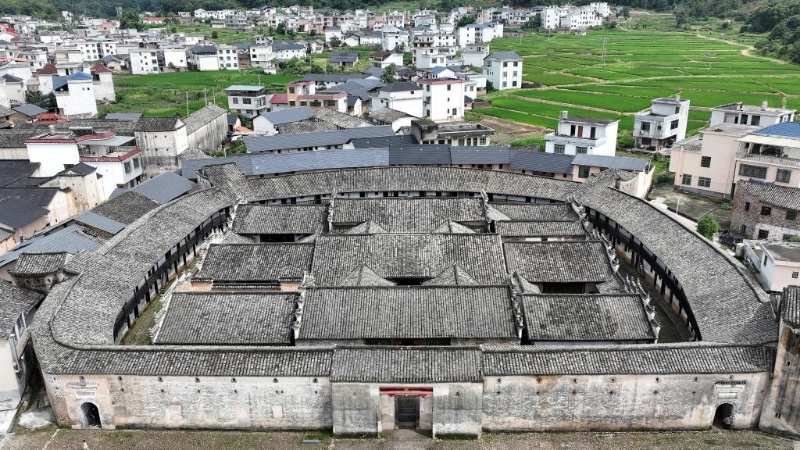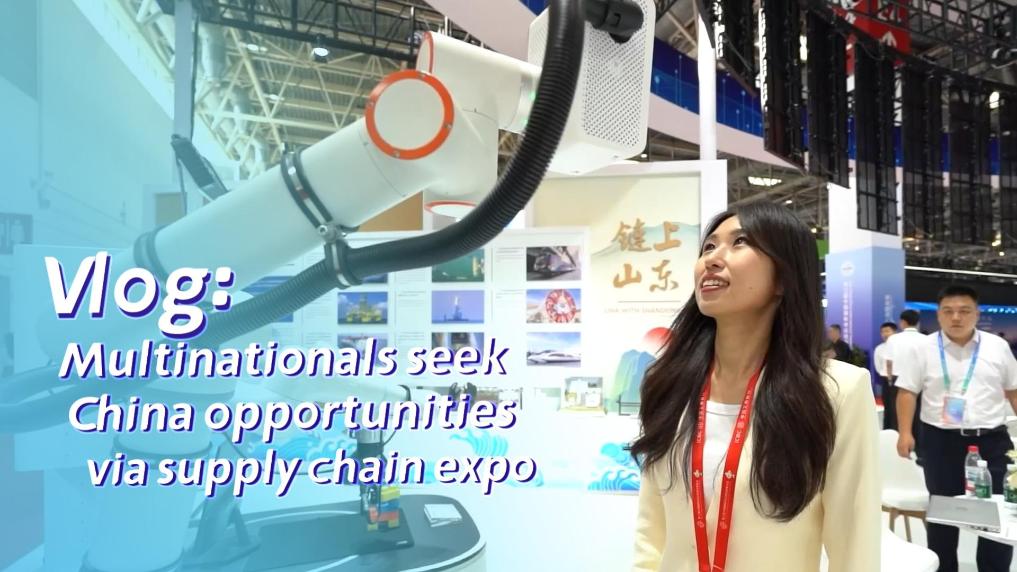"Healthcare on wheels" serves elderly in China's mountainous areas
Source: Xinhua
Editor: huaxia
2025-07-19 09:42:15
HANGZHOU, July 19 (Xinhua) -- In Libao Village, nestled in the misty mountains of east China's Zhejiang Province, a dozen or so elderly residents waited patiently in line beside a white medical vehicle -- a "smart mobile clinic" bringing essential healthcare services to their doorstep.
Among them was 94-year-old Wu Changgen, who had come seeking treatment for his headache and medication for his wife. In the past, he had to walk about 10 km to reach the nearest township clinic.
"It was hard to go down the mountain to see a doctor, so I used to put up with minor ailments," Wu said. But with the medical vehicle, healthcare has come right to his door -- much to his delight.
The mobile clinic, roughly 12 square meters in size and resembling an ambulance, is equipped to support routine check-ups such as blood pressure and glucose tests, and dispense prescriptions.
Jingning She Autonomous County, where Libao is located, operates seven such vehicles, which make four visits every month to 78 remote villages that lack permanent clinics or adequate medical facilities.
Established in 1984, Jingning is China's sole autonomous county of the She ethnic group. The mountainous county is home to 779 peaks over 1,000 meters high, with a scattered, aging population in isolated villages.
Libao, with just over 100 residents, most of whom are over 60 years old, reflects the broader challenge facing rural healthcare in the county. According to Chen Lifeng, director of the health center in Dajun Township, also located in Jingning, a gap remains between the medical needs of local residents and available local resources.
"Setting up clinics in every village is costly, and attracting or retaining medical staff is even harder," Chen said, noting that expanding facilities and staff requires massive investments and lacks sustainability.
To address the issue, in 2019, Jingning began deploying smart mobile clinics, offering basic care and prescriptions in remote mountainous villages while improving services at the health centers in more populated townships.
Peng Dewei, deputy head of the county health bureau, said the program started with four vehicles. By early 2024, Zhejiang had standardized the design and onboard equipment of all mobile clinics.
Each vehicle now carries a general practitioner and a nurse, and is equipped with more than 20 types of medical devices, including ECG monitors and portable ultrasound machines.
"The mobile clinics are designed for rugged terrain and limited power supply in the mountainous region. They also incorporate AI-assisted diagnostics and Internet of Things technology," said Xie Jianhao, board chairman of Ningbo Careful Special Cars Co., Ltd., a manufacturer of the vehicles.
Appointments can be made via a mobile app or through a village health manager, with traditional Chinese medicine practitioners or ultrasound specialists dispatched as needed.
Moreover, Jingning has established a digital dispatch system that tracks each vehicle in real time. If there is an emergency, the nearest mobile clinic can switch to ambulance mode.
Peng said that patients in remote areas can also use telemedicine services to consult with hospital specialists.
"The unequal distribution of medical resources is a global challenge, especially in remote areas," said Wu Liying, head of the county health bureau. "Jingning's smart mobile clinic initiative provides a viable solution."
According to Wu Liying, by May this year, Jingning's seven mobile clinics had traveled over 250,000 km and provided more than 100,000 medical services. Thanks to the mobile clinics, more than 70 percent of patients with chronic conditions like hypertension and diabetes in the county now receive care through standardized protocols.
In Lishui City, which administers Jingning, operating mobile clinics can save around 60 million yuan (about 8.36 million U.S. dollars) in annual operating costs and 233 million yuan in construction costs when comparing with running a clinic in each village.
Zhejiang now has over 500 such mobile clinics, covering nearly all of its remote rural regions.
Xie noted that the vehicles produced by his company have reached mountainous areas in central and southwest China. His company now has its sights set on international markets, including Southeast Asia and the Middle East.
"Our approach has been praised by health professionals in many developing countries," Wu Liying said. "It offers an affordable, adaptable solution for improving primary care access in those countries." ■













Comments